A vegan dietitian shares her top picks and outlines their benefits
As veganism gains in popularity, the amount of processed food options continues to increase. While these are fine to eat as part of a balanced intake, to meet all of your nutritional requirements consider some of the foods listed below.
I wanted to highlight some incredible superhero vegan ingredients that are budget-friendly and versatile while being packed with nutrients. Keep reading to find out what my top five are! Each one will help contribute towards a healthy and well-balanced vegan way of living.
Tofu
Made from soya beans, tofu is extremely versatile and is a great way of adding protein to meals, whether that be in stir-fries, scrambled on toast or blended into soups, sauces and desserts. Opt for calcium-set varieties of tofu, which will help towards your daily recommended calcium intake.
Tofu is a good source of iron, is low in saturated fat and provides essential amino acids, making it an excellent all-rounder. Soya beans are rich in isoflavones, which may be beneficial to health.
If tofu is not for you, alternative ways of adding soya into the diet could be with the inclusion of fortified soya yoghurt and milk or by adding edamame beans to your vegetable intake.
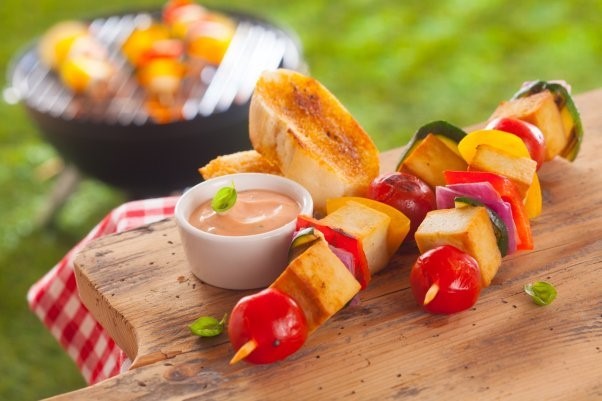
Chickpeas
Chickpeas come from the legume family and are packed full of protein and fibre, as well as providing a good source of iron. Tinned or dried, they are an affordable store cupboard staple.
Chickpeas can be added to curries, blended in a food processor to make hummus and dips, mashed and combined with your favourite flavours as a sandwich filling, or even roasted with spices for a nutritious snack. Chickpea flour can be used as a base for omelettes and quiches, and the liquid from tinned chickpeas (aquafaba) can be used in a variety of ways, from sauces to vegan meringues.
Other legumes and pulses, such as lentils and beans, are an excellent alternative and can add fibre and protein to meals, helping to keep you fuller for longer. The humble can of baked beans can be a quick and easy option to help build a balanced meal and also counts towards one of your 5-a-day!
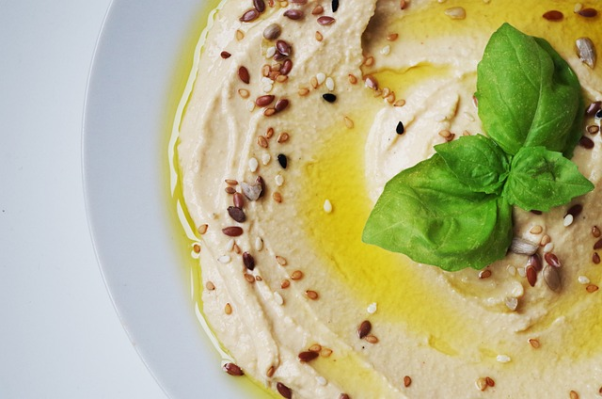
Oats
A great source of carbohydrate, oats are a fabulous way to start the day and provide a good source of slow-release energy. Wholegrains such as oats are low in saturated fat and high in fibre, and may help manage cholesterol levels and promote healthy gut bacteria. Including oats in your diet also helps contribute toward the intake of essential nutrients such as B vitamins, magnesium and iron.
As well as making an excellent breakfast, oats can also be used in desserts, smoothies and snack bars, or added as a topping to your favourite fruit crumble. Oats contain avenin, which is a protein similar to gluten; therefore those who cannot consume gluten may wish to opt for gluten-free oats.
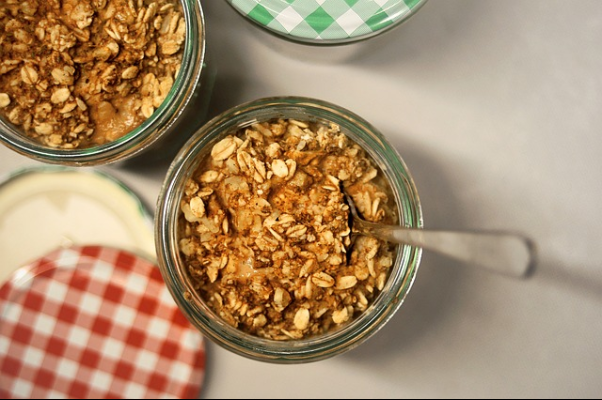
Broccoli
Providing a host of nutritional benefits such as fibre, vitamin C, iron, vitamin K and potassium, broccoli is an excellent way to help meet your five-a-day! In addition, broccoli, along with alternatives such as kale, cabbage or Brussels sprouts, is a good source of folate, which helps promote the formation of red blood cells in the body.
In order to ensure a wide range of vitamins, minerals and antioxidants are included in the diet, try to consume a variety of vegetables each day. Fresh, tinned or frozen vegetables provide a range of affordable options with all the health benefits.
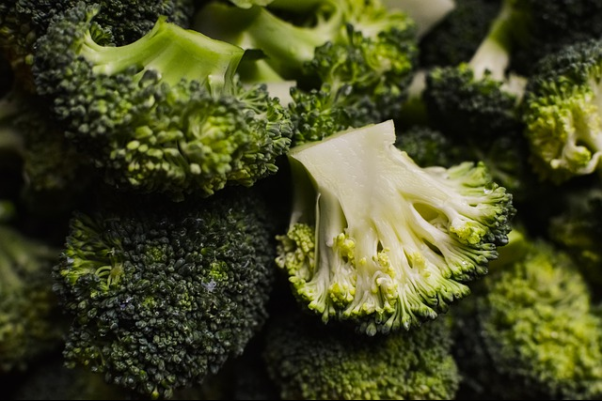
Peanut butter
Peanut butter is high in protein, contains fibre and provides a good source of monounsaturated fats and can be enjoyed as part of a balanced diet. Choose varieties which are made from 100% peanuts to help avoid added saturated fats, sugars and salt.
Peanut butter can be spread on toast, added to sauces and shakes and used in a variety of sweet and savoury dishes. Peanuts provide a source of vitamin E, B vitamins and magnesium, as well as other nutrients, making them a great store cupboard option.
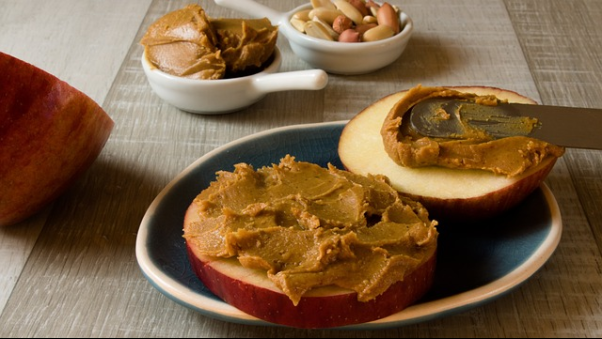
Fats are an essential part of a healthy balanced diet, providing energy, supporting cell function and aiding the absorption of other nutrients. For those with nut allergies, seeds such as chia, flax and pumpkin can also provide an excellent source of healthy fats and protein and can be added to soups, salads, cereals and smoothies. Essential fatty acids known as omega-6 and omega-3 fats cannot be produced by the body, and therefore need to be obtained from dietary intake. Incorporating nuts and seeds is a great way to include essential fats and help to promote a healthy balanced diet.
By Lucy Kendrick, Registered Dietitian
Find out more about our Vegan and Thriving campaign for more tips and delicious plant-based recipes.
The views expressed by our bloggers are not necessarily the views of The Vegan Society.

